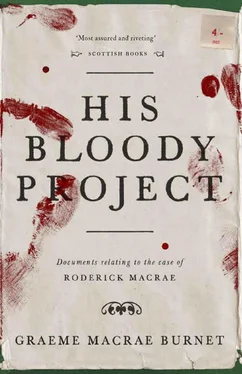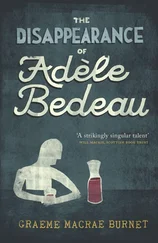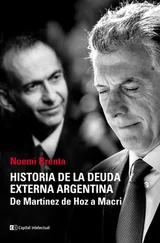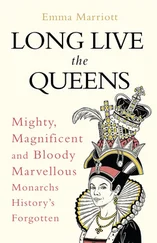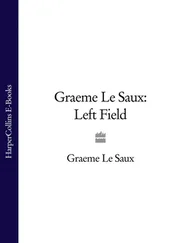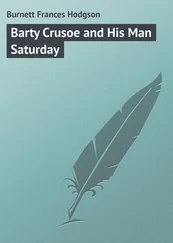We left our ponies tethered outside the Murchison house and walked the remaining length of the village. The M— dwelling was by some distance the most poorly constructed in the township, resembling less a house than a smoking dung-heap. The land to the fore was ill-kempt and overgrown. The door was open and we peered into the chamber. To the left was what appeared to be a dilapidated byre. The stalls were empty of livestock, but the stench was nevertheless rank and few would have considered this a place fit for human habitation. No fire was lit and the chamber was cold and almost in darkness.
Mr Sinclair called out a greeting, to which there was no reply. He stepped into the room and repeated his salutation in Gaelic. A pair of hens, which had been pecking at the dirt, scuttled past our legs. Something stirred to our right and our eyes were drawn to a figure seated in a chair by the tiny aperture in the wall.
‘Mr M—?’ my companion enquired.
The figure got to his feet with some difficulty and took one or two steps towards us, leaning heavily on a gnarled stick. He spoke a few words in the language in which he had been addressed.
Mr Sinclair replied and the man approached us. I have rarely seen such a dismal specimen of the human race. Bent over as he was, he could barely have stood more than five feet tall. His beard and hair were thick and dishevelled, his clothing ragged. At my suggestion, Mr Sinclair asked him if we might step outside to converse for a few minutes. The homunculus looked at us with some suspicion and shook his head. He indicated that if we wished to speak to him we could sit at the table in the centre of the room. We seated ourselves on the benches around the table, the surface of which was speckled with droppings. As my eyes became accustomed to the gloom, I studied Mr M—. He had the same heavy brow and darting eyes as his son. His hands, which busied themselves filling his little pipe, were large, with long, crooked fingers, somewhat flattened at the ends. I wondered if perhaps he had been asleep when we entered, as now he appeared to have shaken off some of his initial confusion. Nonetheless, the expression on his face was one of distrust, if not outright hostility. He did not offer us any refreshments, not that I would have wished to consume the merest morsel in that filthy hovel.
Mr Sinclair asked if he was able to converse with us in English and we proceeded in that language. The advocate then explained the nature of our mission in elementary terms. I was struck by the fact that at no point did Mr M— ask after the wellbeing of his son. Mr Sinclair began by enquiring about the welfare of the crofter’s youngest offspring. He replied that they had been taken in by his wife’s family in Toscaig.
Mr Sinclair then offered his condolences for the death of his daughter.
Mr M—’s eyes hardened. ‘I have no daughter,’ he said.
‘I meant your daughter, Jetta,’ Mr Sinclair said by way of explanation.
‘There is no such person,’ the crofter said through tight lips.
My associate’s remarks, well-intentioned though they were, had done nothing to improve the atmosphere around the table.
‘So you are quite alone then?’ I said.
Mr M— made no reply to this question, perhaps quite reasonably considering that the answer was self-evident. He lit his pipe and gave it a series of short puffs to get it going, his eyes flitting all the time between his two unwelcome guests.
‘Mr M—,’ I began, ‘we have travelled some distance to speak to you and I hope you will be good enough to answer a few questions about your son. It is of some importance that we try to understand his state of mind when he committed the acts of which he is accused.’
Mr M—’s expression did not alter and I wondered whether he had understood anything of what I had said. I resolved to put my enquiries in the simplest possible terms. My expectations of hearing anything of interest were not high, but I had, at least, learned something from observing the lamentable conditions in which R— M— had dwelt.
‘You recall, I am sure, the day the murders took place?’ I paused here in anticipation of some sign of affirmation, but receiving none, I continued. ‘Could you describe your son’s state of mind on that morning?’
Mr M— sucked noisily on the stem of his pipe.
‘One man can no more see into the mind of another than he can see inside a stone,’ he said eventually.
I decided to frame my question in a more direct way: ‘Was your son generally of a happy disposition?’ I asked. ‘Was he a cheerful boy?’
The crofter shook his head, less, I construed, in disagreement, than to express that he had no opinion on the matter. Nevertheless, it did at least constitute some kind of response, and I took a little encouragement from it.
‘Did your son tell you of his intention to kill Lachlan Mackenzie?’ I said.
‘He did not.’
‘Did you have any inkling that he planned to do so?’
He shook his head.
‘Is it true that there had been some disputes between yourself and Mr Mackenzie,’ I persisted.
‘I would not call them “disputes”,’ he replied.
‘What would you call them?’
Mr M— stared at me for a few moments. ‘I would not call them anything.’
‘But if you would not call them “disputes”, you must by necessity call them something else?’ I said.
‘Why must I?’ he said.
‘Well,’ I said, in a most affable tone, ‘if you wish to speak of something, it is necessary that you give it a name.’
‘But I do not wish to speak of it. It is you who wishes to speak of it,’ he said.
I could not help but smile at his response. He was perhaps not as dim-witted as I had first supposed.
Mr Sinclair then made an attempt of his own to overcome the old man’s obduracy.
‘Would it be correct to say that Mr Mackenzie was waging some kind of vendetta against you?’
‘That is a question you would need to be putting to Mr Mackenzie,’ said the old man.
Mr Sinclair looked at me with a defeated expression.
Mr M— then leant a little over the table towards us. ‘Whatever my son has done cannot be undone. Nothing you or I might have to say about it is of any consequence.’
‘But Mr M—, I’m afraid that you are quite mistaken,’ said Mr Sinclair earnestly. He explained that his son’s prospects of escaping the gallows depended to a very large degree on determining the state of his mind at the time he committed his crimes, and it was, accordingly, not out of idle curiosity that we had travelled from Inverness to put these questions to him.
The crofter looked at him for some moments. His pipe had gone out and he tapped the contents onto the table in front of him and began to fumble in his pouch for whatever dregs remained there. I took out my own pouch and pushed it into the middle of the table.
‘Please …’ I said with a gesture of invitation.
Mr M—’s eyes looked from me to the pouch and then back again, no doubt weighing the extent to which he would feel in my debt if he accepted the gift. He then placed his pipe on the table and said, ‘I do not think I can be of any help to you, sir.’
I told him he had already been of great assistance and requested that I put a few questions to him about his son. As he did not object, I asked in turn whether his son had suffered from epilepsy; was given to violent swings of temper, or to raving or hallucinations; whether he was eccentric in his habits or behaviour; or if there was history of mental disorder in the family. To all these questions the crofter answered in the negative. I did not place a great deal of faith in his responses however, as despite the abject conditions in which he lived, he would have likely thought it shameful to admit to the existence of such propensities in his family.
Читать дальше
